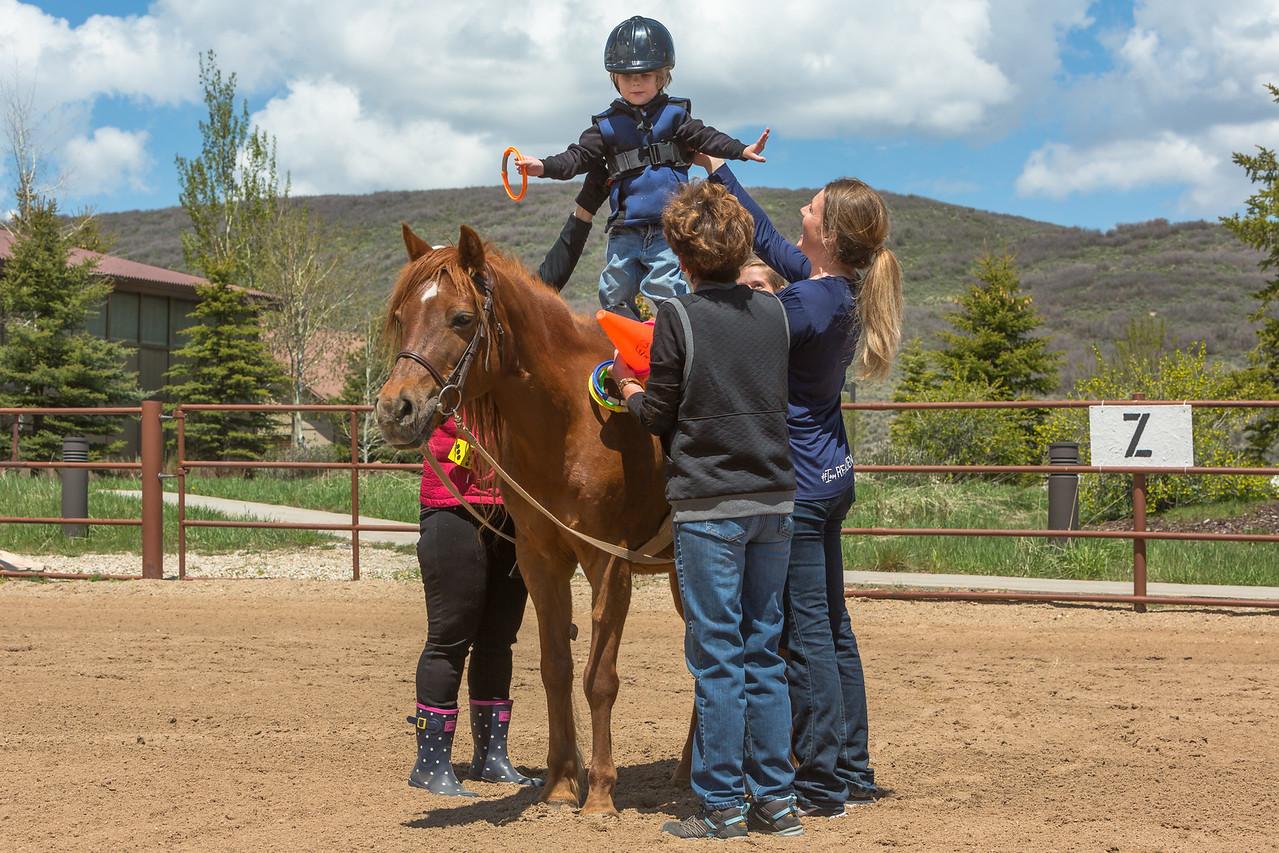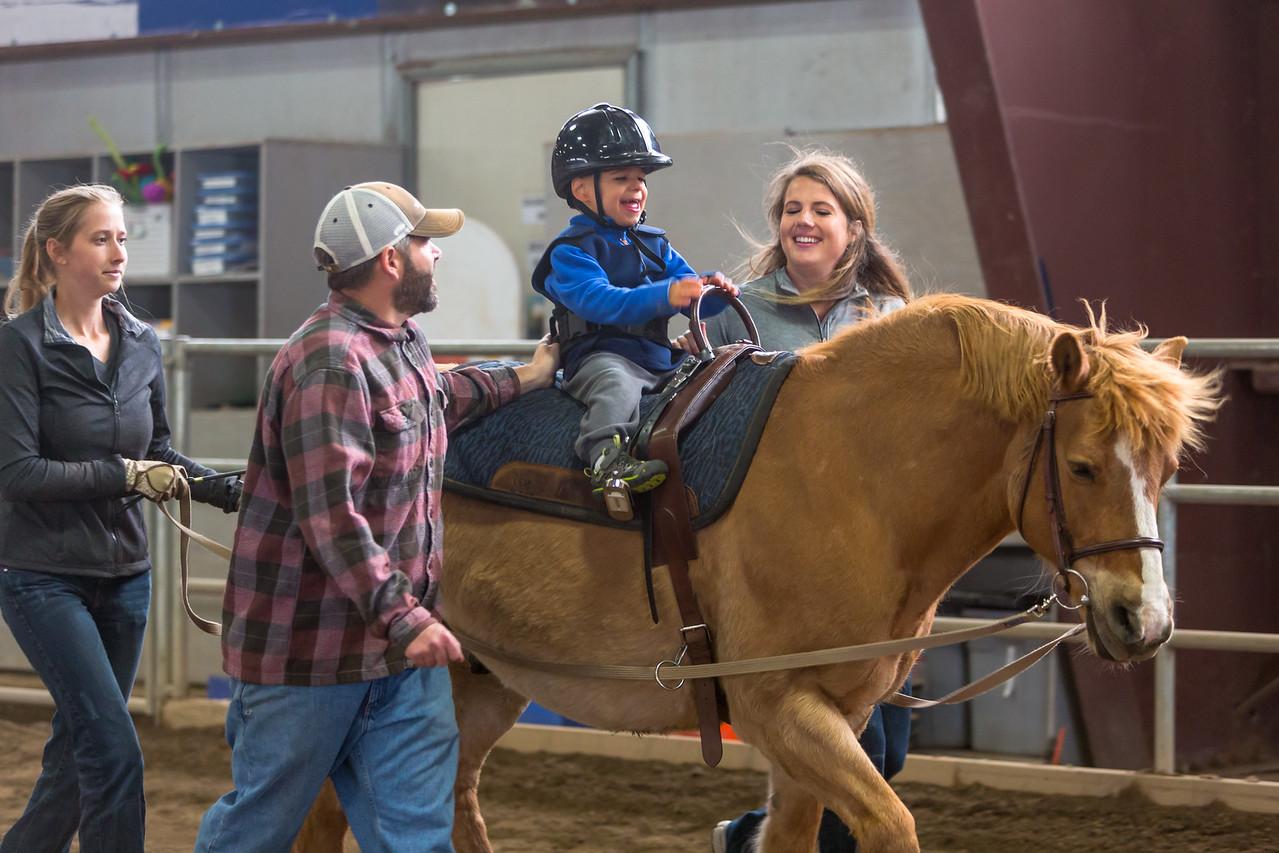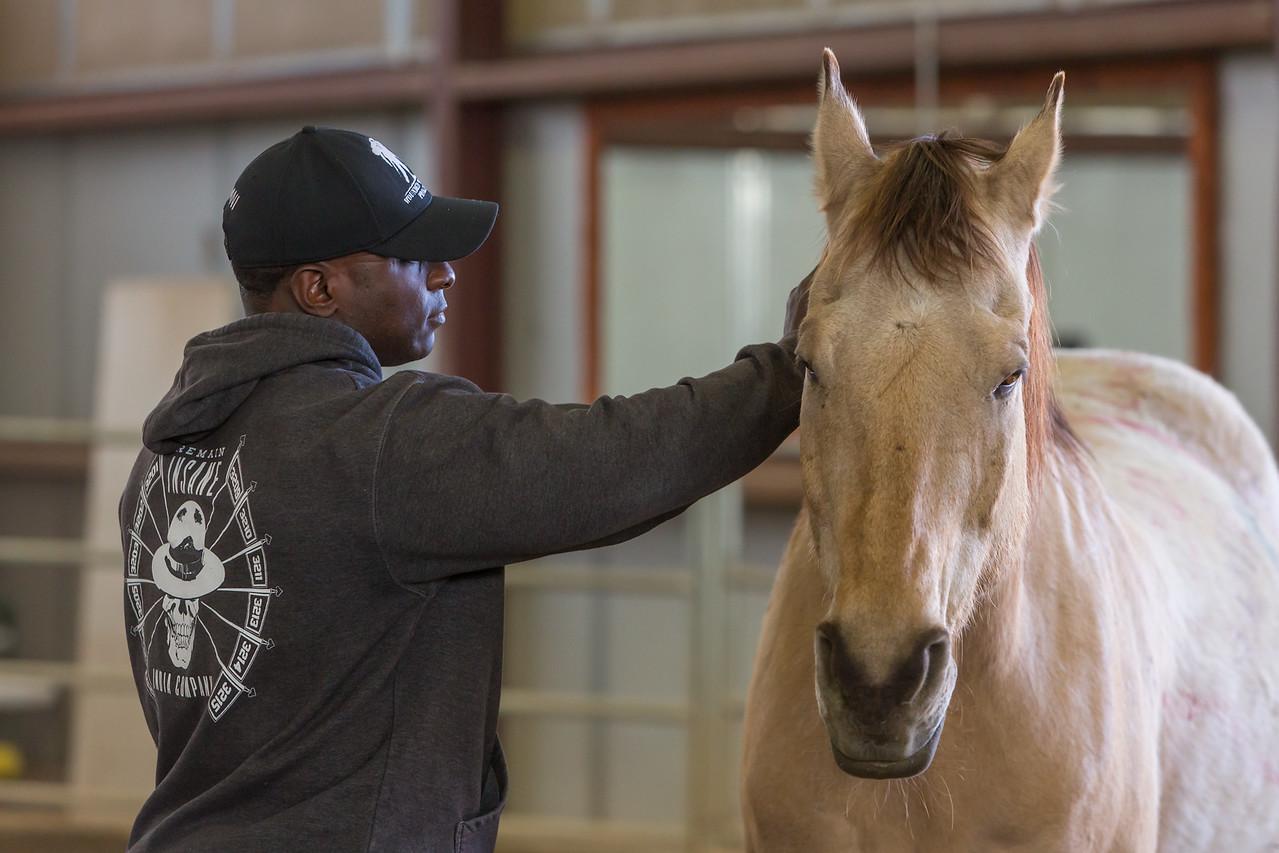
Standing Ovation by Ovation Riding: The National Ability Center
Every Friday, Horse Nation teams up with Ovation Riding to spotlight an individual or organization doing good work in the horse world. Today, we recognize the National Ability Center of Park City, Utah.
The National Ability Center, among a wide array of programs, operates adaptive equestrian programming to provide therapeutic benefits to a wide range of students. We spoke with Whitney Thompson to learn more.
HN: What is the National Ability Center’s mission statement and charity status?
WT: The National Ability Center is a 501 c3 non-profit organization with a 4-star rating from Charity Navigator. Our Mission is to empower individuals of all abilities by building confidence, self-esteem and lifetime skills through sport, recreation and educational programs.
HN: How did the National Ability Center get started? When and how did the equestrian program develop?
WT: We’ve been delivering adaptive sport programming since 1985, when Meeche White and Pete Badewitz brought a group of Vietnam veterans with disabilities to the slopes of Park City Mountain through a grant from Disabled American Veterans of Utah.
Just a couple of years later, the Equestrian Program of the National Ability Center began in a small outdoor arena in a local backyard, using borrowed horses for just a few lessons per week. In 1992, the program moved to a private indoor arena on Old Ranch Road (a local agricultural zoning area) where it continued to provide much-needed adaptive equestrian programming for four years. In 1997, The National Ability Center received a generous, anonymous gift of a 26-acre ranch in the heart of Park City’s Round Valley area. This became the Bronfman Family Recreational Center & Ranch. Two years later, in 1999, the NAC built a 17,000 square foot indoor arena with 9 stalls to host their growing equestrian programs.
Through its long history of providing adaptive programming, the National Ability Center has been recognized as a leader in the industry and received professional recognition from organizations like PATH.
HN: What’s the scope of the equestrian program: what kind of students are you working with and what sort of skills are you developing?
WT: We offer three forms of adaptive equestrian programming; adaptive horseback riding and adaptive trail riding, hippotherapy and equine assisted learning (EAL). These programs take place six days a week, year-round, providing therapeutic benefits for individuals with cognitive, behavioral or physical disabilities. While we work with individuals of all ages, from two years of age to those in their 80s and 90s, hippotherapy and adaptive riding have proven particularly effective for children.
We strive to build confidence, self esteem and lifetime skills in all of our programs. Specific skills developed in our equestrian programs range according to an individual’s needs and the programs they are participating in. For example, adaptive horseback riding lessons are designed to meet specific riding goals through activities that develop cognitive, physical and/or social skills. Hippotherapy, which literally means “treatment with the help of the horse” provides a fun an interactive way for riders to receive physical, occupational or speech language therapy. Finally, equine assisted learning (EAL) is an un-mounted, educational approach that incorporates equine-assisted activities and equine/ human interaction.
EAL participants develop skills that help them build relationships, improve communication and deal with concerns like post-traumatic stress disorder (PTSD)
HN: How are you funded? Do you operate with volunteer help?
WT: The National Ability Center began in 1985 thanks to a grant from Disabled Veterans of America. To this day, we are able to fund our programs and provide needed scholarships through a combination of individual donations, corporate partners and grants. In addition, we rely on volunteers to help us successfully deliver our programs. You will see volunteers helping in our font office, leading committees for our fundraising events, and of course, delivering programs.
In the equestrian program, volunteer support is critical to providing experiences. Volunteers help with leading the horse or providing physical or emotional support to riders during the supported or emerging independent lessons. Many of our volunteers do not have prior horsemanship experience, and learn everything from the ground up as they begin helping in our programs. Sharing the joy of horses with our volunteers as well as the participants is a great benefit of our program!
HN: What’s one thing you wish people knew about the work you are doing?
WT: Many people do not realize that Equine Assisted Activities and Therapies is a very specialized subset of the equestrian world. Our horses are obviously the backbone of our program — this is obvious to most people. Many folks view their work as “just a pony ride” or “all you do is brush them, right?” In reality, all of our horses have a customized schooling and training program to help them keep fit, strong, and of good mind to tolerate the high volume of change and activity they experience in their role. Each horse has a maximum workload that can range from being long lined and surrounded by five humans, to an independent walk, trot, canter lesson, to an unmounted experience. Our horses need to be able to be actively ridden so that they can be fit and strong to carry a wide variety of riders.
The effect of the work we are doing here at the National Ability Center extend far beyond our arena walls. Through the skills that individuals build here in our equestrian programs, riders, staff and volunteers develop skills that allow them to thrive in life. Many have gone on to be leaders in their communities or to push the boundaries of possibility in a way that challenges the cultural perception of what it means to live with a disability. And, this effect is widespread. Nearly 40% of the individuals who participate in National Ability Center programs live outside of Utah. And, we are working towards a goal to lead more adaptive sport trainings and grow this adaptive community.
To learn more about the National Ability Center, please visit the organization’s website.
Many thanks thanks to Ovation Riding for their support of both Horse Nation and individuals and organizations that are doing good work in the horse world. If you know someone who deserves a Standing Ovation, we would love to recognize them in a future post. Email the name of the person or organization along with a message about the good work they do to [email protected]. Photos/videos are always welcome, and include a link to their website if applicable.










Leave a Comment